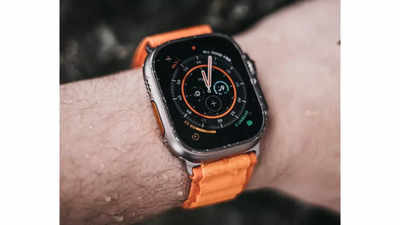
In October 2023, the US International Trade Commission ordered a ban on importing Apple Watch Series 9 and Watch Ultra 2. Apple appealed, and the ban was temporarily lifted but has now been rejected.
Just hours after it was revealed that US appeals Court had rejected Apple’s plea to pause the ban on sale of
Apple Watch
Ultra 2 and
Watch
Series 9, the company has made a big announcement.
Apple
has said that it will start selling the two banned Watch models without the disputed blood oxygen feature, according to a report by 9to5Mac.
In a statement given to 9to5Mac, Apple said, “Apple’s appeal is ongoing, and we believe the
US Court of Appeals
for the Federal Circuit should reverse the USITC’s decision.
We strongly disagree with the
USITC
decision and resulting orders.”
The company said that it wants to ensure “customers have access to Apple Watch with limited disruption.” Keeping that in mind, Apple is introducing a version of Apple Watch Series 9 and Apple Watch Ultra 2 in the United States without the Blood Oxygen feature. "There is no impact to Apple Watch units previously purchased that include the Blood Oxygen feature,” Apple said in the statement.
Starting January 18, Apple Watch Series 9 and Apple Watch Ultra 2 without the Blood Oxygen feature will become available in the US.
Apple also said that the Watch models will have the bloody oxygen app. However, when a user tried to open the app, they will see a message which reads “The Blood Oxygen app is no longer available. Learn more in the Health app on your iPhone.” A support article will be visible on Apple’s website when users open the Health app on their iPhone about why the feature has been removed.
What the dispute is all about?
Masimo
, a medical tech company, claims Apple infringed on its patented technology used to measure blood oxygen levels in the Apple Watch Series 9 and Watch Ultra 2. In October 2023, the
US International Trade Commission
sided with Masimo, ordering a ban on importing the infringing watches. However, Apple appealed, and a court temporarily lifted the ban, which again has been rejected.












 English (US) ·
English (US) ·